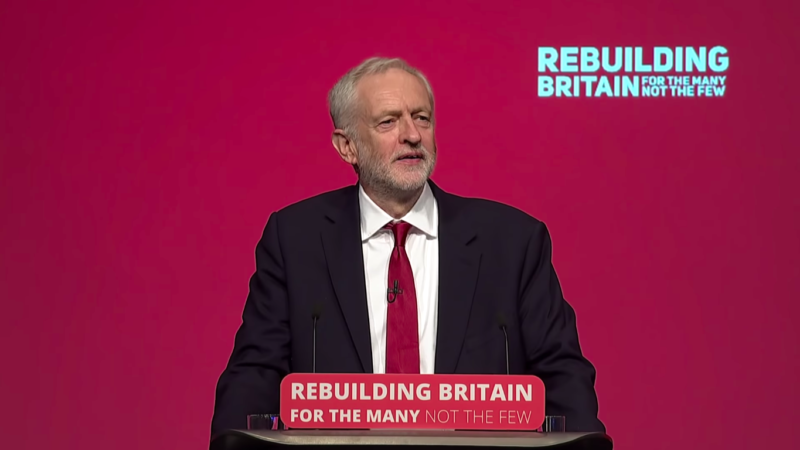
Today is the tenth birthday of LabourList, which launched on 10th January 2009. First edited by Derek Draper, whose dramatic entry and exit from the project remains unrivalled (so far), the site was then under the helm of Alex Smith, Mark Ferguson and Peter Edwards, all of whom contributed brilliant reporting and helped grow this mailing list, which now has over 37,000 subscribers. I’ve only been in post less than a year, but hope I have provided some clarity and useful analysis in these interesting times. To mark the occasion, I’ve rounded up the most-read comment pieces of the last ten years and made an anniversary survey, where you can quickly offer your views on the last decade of Labour leaders, events and campaigns.
Also in celebration of our birthday I’m sure, Jeremy Corbyn will make a speech on Brexit in Wakefield, Yorkshire, this morning. The Labour leader is expected to argue that a general election is the best way to break the Brexit deadlock, insisting that a government with a fresh mandate would be able to “negotiate a better deal for Britain and secure support for it in parliament and in the country”. Corbyn will pair this demand with his take on what really divides the UK: whether you’re living in Tottenham or Mansfield (marginal seat klaxon), he will say, “you’re up against it”. The split is not between Leavers and Remains, according to Corbyn, but “between the many, who do the work, create the wealth and pay taxes, and the few, who set the rules, reap the rewards and so often dodge taxes”.
This speech normalises the idea of a general election and effectively communicates it as Labour’s top priority to the public. It also establishes a narrative that our two irreconcilable electoral camps – pro-EU metropolitan seats and Leave-voting marginals that need to be won back – have more in common than often assumed during this all-consuming Brexit crisis. More generally, it shifts the focus from Brexit, i.e. tricky ground for the party, to Corbyn’s comfort zone, which is talking about the need to oppose “the entrenched power of a privileged elite”. In sum, it works on many levels – but Labour still needs to work out a way to actually force that election.
The government was defeated for a second time in 24 hours yesterday: the (latest) Grieve amendment forces the Prime Minister, after losing her meaningful vote on Tuesday, to return with a ‘Plan B’ within three sitting days. (This involved dramatic scenes in the Commons – if you missed the afternoon’s events, read my explainer.) This is crunch time. Most likely to happen over the next week: the deal is voted down; Theresa May secures some assurances from the EU on the backstop; she returns with a slightly modified plan. Unless the backstop is scrapped, the DUP won’t be having it. But the government could win support from opposition MPs.
Such efforts have already begun: although Gareth Snell wrote a piece for LabourList in November pledging to vote against May’s deal, he has now proposed an amendment with Caroline Flint, Lisa Nandy and John Mann that would guarantee workers’ rights and environmental protections. It is expected that the government will back this helpful move. And the talk is now of May ultimately conceding on customs union membership. Could that see the Labour leadership abstain or support a revised Tory deal? Remember that the only way to get the DUP to vote with Labour in a vote of no confidence is for May’s deal to pass. If a general election is Corbyn’s first preference, letting a Plan B gain Commons approval could be the next step.
Sienna @siennamarla
Update, 11am: LabourList has been told by Snell’s office that the MP still intends to vote against May’s deal, and the amendment relates to “the conversation about future domestic legislation” – not getting her deal passed.
Sign up to LabourList’s morning email for everything Labour, every weekday morning.



More from LabourList
Government abandons plans to delay 30 local elections in England
‘The cost of living crisis is still Britain’s defining political challenge’
‘Nurses are finally getting the recognition they deserve’